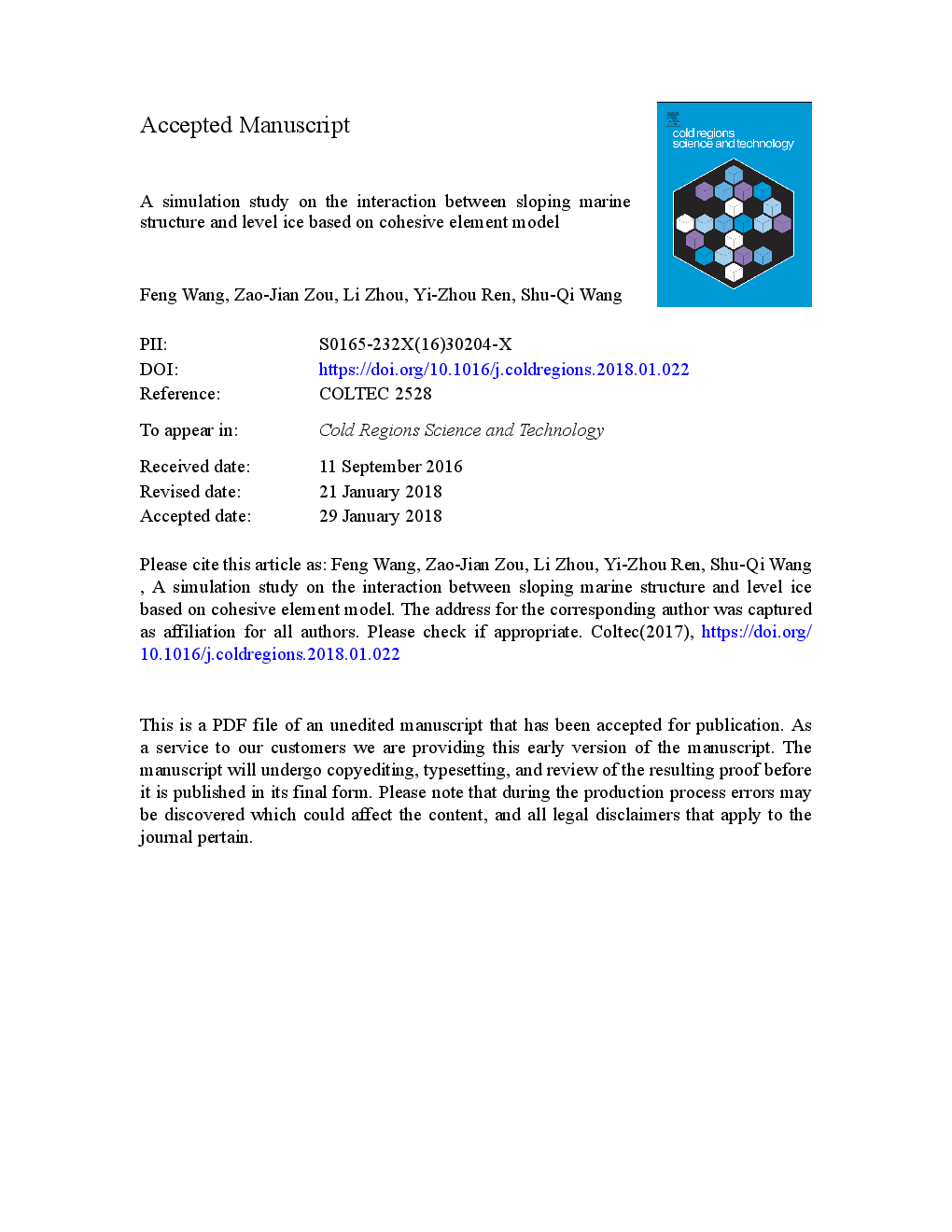ترجمه فارسی عنوان مقاله
یک مطالعه شبیه سازی بر روی تعامل بین ساختار دریایی شیب دار و سطح یخ بر اساس مدل عنصر انسانی
عنوان انگلیسی
A simulation study on the interaction between sloping marine structure and level ice based on cohesive element model
| کد مقاله | سال انتشار | تعداد صفحات مقاله انگلیسی |
|---|---|---|
| 161622 | 2018 | 45 صفحه PDF |
منبع

Publisher : Elsevier - Science Direct (الزویر - ساینس دایرکت)
Journal : Cold Regions Science and Technology, Volume 149, May 2018, Pages 1-15
ترجمه کلمات کلیدی
تعامل ساختار-یخ، مدل سازنده الاستوپلاستیک مدل عنصر انعطاف پذیر، تجزیه و تحلیل پارامتریک، بارهای یخی،
کلمات کلیدی انگلیسی
Structure-ice interaction; Elastoplastic constitutive model; Cohesive element model; Parametric analysis; Ice loads;

